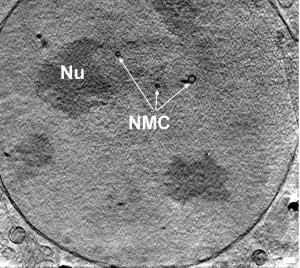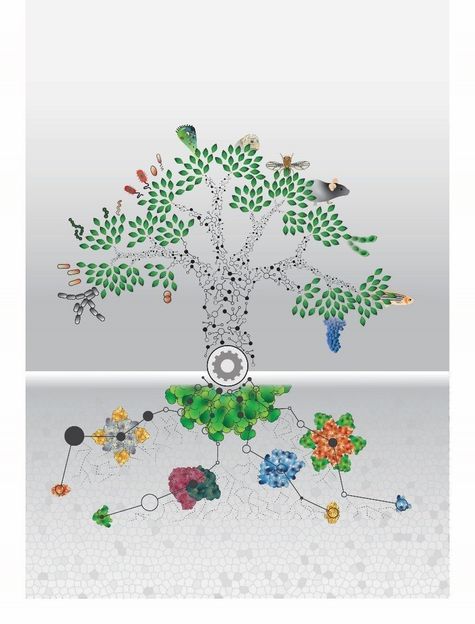Small, beautiful and additive-free
Radically new microscope commercialized
The National Research Council Canada (NRC) recently helped Olympus to design and commercialize a CARS (Coherent Anti-stokes Raman Scattering) microscope.
The new Olympus microscope is based on a femtosecond non-linear optical process called CARS, which stands for Coherent Anti-Stokes Raman Scattering. CARS is a molecule-specific imaging method that permits researchers to see particular chemicals and structures inside living cells, without adding any dyes or stains: CARS is additive-free! While CARS itself is not new, the NRC team developed a simple, robust yet high performance approach that permitted rapid commercialization. CARS microscopy will now be available to biological and medical researchers in a cost-effective system. New opportunities will abound.
Cells are very small and optical microscopes are required to see them. Unfortunately, the internal components of cells do not come colour-coded for our convenience. To deal with this, scientists have developed, over many decades, various dyes and stains to colour the internal bits of cells so that they could be discerned in an optical microscope. However, if one wants to study processes in live cells busily going about their business, there is a problem. Cellular processes and biochemistry are exceedingly complex and no one knows for sure if these added dyes or stains alter any of these biochemical processes. The best, of course, would be to observe live cells without adding anything at all. Enter CARS microscopy.
CARS is based upon the internal vibrations of molecules. Different molecules have different structures. Due to this, the internal vibrations of these molecules will also be different. CARS recognizes molecules by their "vibrational fingerprint". It is this unique characteristic that allows CARS microscopy to image components inside of cells without adding any dyes or stains.
Compared to Raman microscopy, a well established imaging method that also uses "vibrational fingerprints", CARS is a game changer. For example, a Raman microscopy image that might take 12 hours to scan can now be recorded using CARS microscopy in ½ a second. This allows for real-time movies to be made of live cells and biological tissues.
Most read news
Organizations
Other news from the department science

Get the life science industry in your inbox
By submitting this form you agree that LUMITOS AG will send you the newsletter(s) selected above by email. Your data will not be passed on to third parties. Your data will be stored and processed in accordance with our data protection regulations. LUMITOS may contact you by email for the purpose of advertising or market and opinion surveys. You can revoke your consent at any time without giving reasons to LUMITOS AG, Ernst-Augustin-Str. 2, 12489 Berlin, Germany or by e-mail at revoke@lumitos.com with effect for the future. In addition, each email contains a link to unsubscribe from the corresponding newsletter.



















































